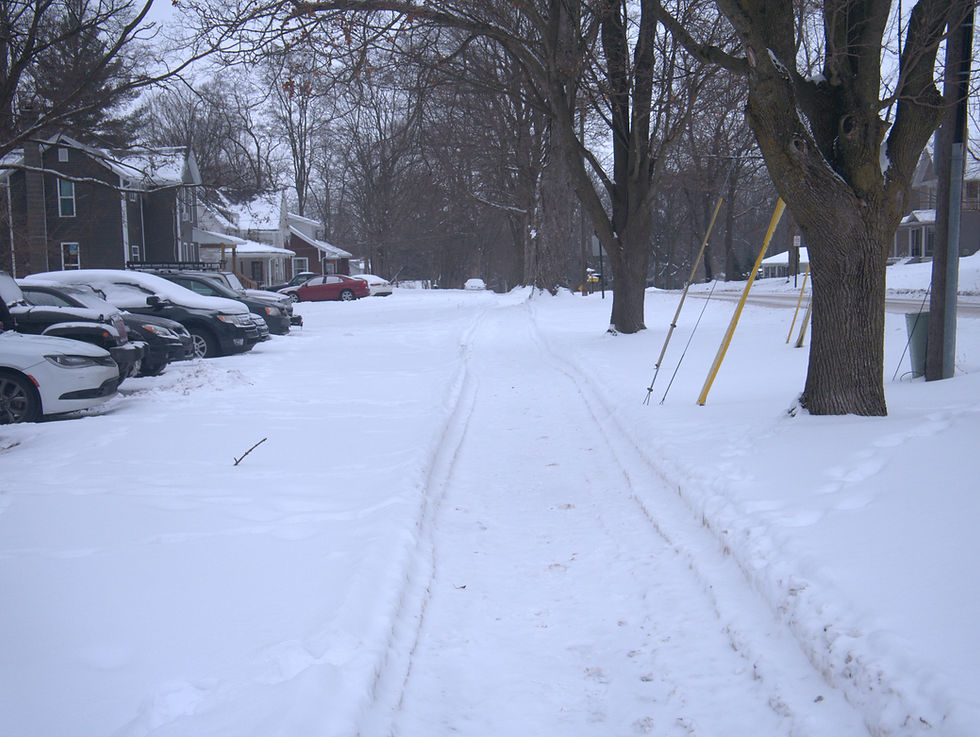Overwhelming Autumn Olive Presence at Olivet College Nature Preserve
- Rebecca Lifford, Maggie Berner, Julia Mellinger
- Apr 9, 2021
- 2 min read
Kirkelldel is a valued part of the Olivet College Biological community. According to the Olivet 2021-2022 academic catalog, it has “five habitat sites and broad biological diversity.” It is located two miles south of the campus, on Pine Lake.
For years professors have used Kirkelldel as a teaching resource, bringing the classroom outdoors for students. However, much like other ecosystems in Michigan, Kirkelldel is experiencing the strain of invasive species. Invasive species are non-native organisms that pose a major threat to ecosystem health. By consuming scarce resources, limiting food availability, and taking up space these organisms threaten the survival of essential native species.
One of the most persistent and widespread invasive species in Michigan is autumn olive. According to the U.S. Department of Agriculture, National Invasive Species Information Center, autumn olive was introduced to the country in 1830 as an ornamental plant, and for other reasons. This thorny shrub can be up to six feet tall and spreads rapidly in various habitats. It is identifiable due to its shrubby appearance, thorny branches, small red berries, and rich green leaves with a silver underside.
Kirkelldel has fallen victim to this plant, and as a result native species in the area have suffered.

An illustration of the autumn olive plant.
How Did We Discover This Problem?
Hillarie Gibbs, a senior biology and environmental science student at Olivet College, spent much of 2020 identifying invasive species present at Kirkelldel. In her time studying this issue, she managed to identify over 300 individual autumn olive organisms.
Additionally, senior Rebecca Lifford spent the 2020-2021 academic year studying this issue as part of a research fellowship exploring the invasive species’ impact on the local ecosystem.
Before this year it was well known by professors and members of the biology department that Kirkelldel had a persistent invasive plant species problem that needed attention. The extent of the damage had not been surveyed until this academic year, and the results are enough to push for change.
What Has Been Done?
Many students have already begun to act against this environmental problem. During the Fall 2020 semester, a group of student tackled autumn olive removal as part of their service-learning elective. Students Gibbs, seniors Kalie Rolfe, Alexis Kahler, and Lifford, spent one semester identifying, cutting down, and removing autumn olive and multiflora rose. A pair of students from an environmental science shadowed the group at one point, and students from Earthbound are continuing the project this spring.
Courtesy Images




Comments